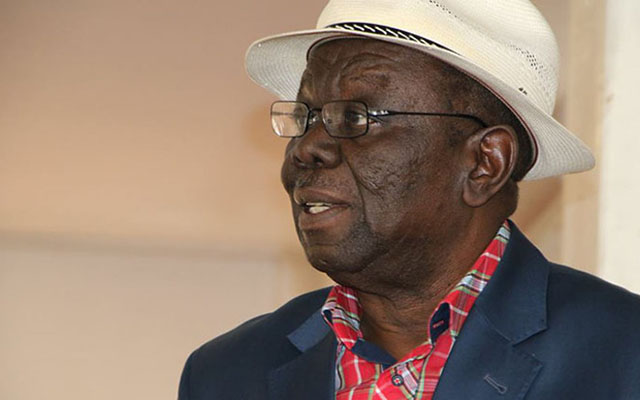US unveils new security strategy
WASHINGTON. – The main focus of national security for the United States is now power competition and not terrorism, US Defence Secretary James Mattis said yesterday, announcing the new National Defence Strategy.
“We will continue to prosecute the campaign against terrorists, but great power competition – not terrorism – is now the primary focus of US national security,” Mattis said in prepared remarks, concerning the country’s new security strategy, released by the Pentagon.
The official presented the country’s strong message reflected in the document, issuing a pointed warning to America’s adversaries, adding that the US Joint Force will compete to deter aggression in three main regions: Indo-Pacific, Europe and the Middle East.
“Our competitive edge in every domain of warfare – air, land, sea, space, and cyberspace – is eroding,” Mattis said.
Mattis described the US position towards those who might undermine the country’s democracy.
“To those who would threaten America’s experiment in democracy: if you challenge us, it will be your longest and worst day,” Mattis said.
Speaking about global stability, Mattis named North Korea and Iran as the main threats.
“Rogue regimes like North Korea and Iran persist in taking outlaw actions that threaten regional and even global stability,” Mattis stated.
The top official stressed that the US was facing growing threats from different revisionist powers, including Russia and China. As he explained, Moscow aimed to shatter NATO, change European and Middle East security in its favour, while China uses “predatory economics to intimidate its neighbours while militarising features in the South China Sea”. According to him, the US envisages strategic competition with these countries as long-term priorities for the Pentagon.
“We face growing threats from revisionist powers as different as China and Russia, nations that seek to create a world consistent with their authoritarian models – pursuing veto authority over other nation’s economic, diplomatic and security decisions,” Mattis said.
Mattis explained the new US position on Russia, saying Washington was concerned with Moscow’s modernisation of its nuclear arsenal.
The released document describes the stance in the following way: “A strong and free Europe, bound by shared principles of democracy, national sovereignty, and commitment to Article 5 of the North Atlantic Treaty is vital to our security. The alliance will deter Russian adventurism, defeat terrorists who seek to murder innocents, and address the arc of instability building on NATO’s periphery.”
Moreover, the document said Russia is “now undermining the international order from within the system by exploiting its benefits while simultaneously undercutting its principles and ‘rules of the road.’”
“Concurrently, Russia seeks veto authority over nations on its periphery in terms of their governmental, economic and diplomatic decisions, to shatter the North Atlantic Treaty Organisation and change European and Middle East security and economic structures to its favour,” the document said.
According to him, Washington is planning to build new military partnerships, enhance the country’s defence by investing in nuclear forces, as well as space, cyber and missile defence.
“We are going to build a more lethal force . . . We will strengthen traditional alliances while building new partnerships with other nations,” Mattis said in prepared remarks released by the Pentagon.
“We will modernise key capabilities. Investments in space and cyberspace, nuclear deterrent forces, missile defence, advanced autonomous systems and resilient and agile logistics will provide our high-quality troops what they need to win.”
The official underlined the importance of defence spending for Washington, saying that no enemy has done more to harm the readiness of the country’s military forces than the impact of defence spending caps, adding that a possible government shut-down would negatively influence military operations, including maintenance, training and intelligence sharing. Mattis has urged US lawmakers to avoid the shut-down, commenting on the recent standoff in the country’s government over the adoption of the short-term budget to prevent government shutdown.
The document stipulates the US modernisation of its nuclear triad and investment in missile defence in order to deter external aggression.
“The (US Defence) Department will modernise the nuclear triad – including nuclear command, control and communications and supporting infrastructure,” the document said.
“Investments will focus on missile defences and disruptive capabilities.”
Under the 2018 US National Defence Strategy, the US will allocate funds for developing autonomous military technology, artificial intelligence, machine learning, “including rapid application of commercial breakthroughs, to gain competitive military advantages”.
He went on to speak about extremist groups, spreading violence around the world.
“Despite the defeat of ISIS’s (Daesh) physical caliphate, violent extremist organisations – like Lebanese Hezbollah, ISIS, and Al Qaeda – continue to show hatred, destroying peace and murdering innocents across the globe,” Mattis stated.
The released document describes Washington’s idea of coalitions as necessary for the defeat of terrorists. – Sputnik









Comments